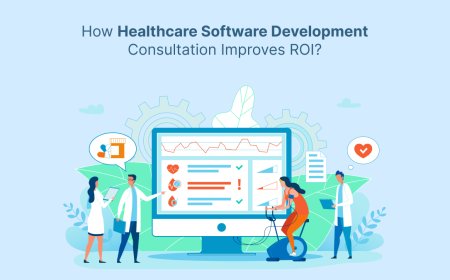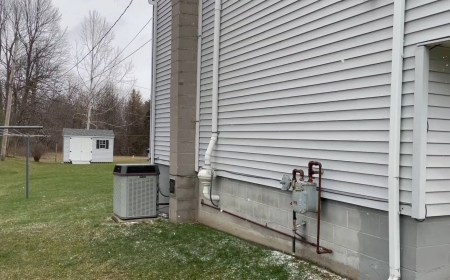The Culminating Insight: NURS FPX 4020 A4 & Resilient Healthcare
Explore NURS FPX 4020 Assessment 4, where nurses master evaluation to confirm positive outcomes, inform future innovation, and ensure the long-term resilience and excellence of patient care systems.
The journey of healthcare quality improvement is a dynamic process, one that moves from problem identification and root cause analysis to meticulous planning and dedicated implementation. Yet, the true measure of this journey, its ultimate purpose and most valuable lesson, lies in demonstrable, sustainable impact. This crucial final phase is the focus of NURS FPX 4020 Assessment 4, where implemented changes are not just observed, but rigorously evaluated, their effects quantified, and their future secured.
This article will explore how NURS FPX 4020 Assessment 4 empowers nurses to become strategic evaluators and influential advocates. We'll delve into how they leverage data to confirm positive outcomes, glean vital insights for future innovation, and ultimately ensure the long-term resilience and excellence of patient care systems. It's about closing the loop, solidifying gains, and paving the way for continuous improvement.
The Final Test: Why Evaluation is Essential
In a resource-constrained and rapidly evolving healthcare landscape, simply implementing a new protocol or technology is rarely enough. Without systematic evaluation, we cannot definitively say whether the change was effective, if it yielded the intended benefits for patients, or if it was worth the invested time and resources. Evaluation, therefore, is not an optional add-on; it is a core responsibility that drives accountability and fuels genuine learning.
Think of it as the ultimate feedback mechanism. It transforms efforts from speculative attempts into validated successes or, equally importantly, into valuable lessons learned from initiatives that didn't go as planned. This systematic approach allows organizations to celebrate proven improvements, reallocate resources effectively, and avoid repeating ineffective strategies. NURS FPX 4020 Assessment 4 positions nurses as critical agents in this final, vital step, transforming their initiatives into verified contributions to a safer, more efficient, and resilient healthcare future.
Mastering the Metrics: Core Components of NURS FPX 4020 Assessment 4
NURS FPX 4020 Assessment 4 equips nurses with advanced skills in measuring, interpreting, and leveraging the outcomes of quality improvement initiatives.
Rigorous Outcome Measurement

At the heart of this assessment is the process of objectively measuring the impact of the implemented intervention. Nurses learn to:
-
Select Appropriate Metrics: Move beyond simple activity counts to identify and gather data on meaningful outcome measures (e.g., reduced infection rates, decreased patient fall rates, improved patient satisfaction scores, decreased readmission rates). They also learn to identify balancing measures to detect unintended consequences.
-
Apply Valid Methods: Utilize appropriate tools and methodologies for quantitative and qualitative data collection and analysis, ensuring the integrity and reliability of their findings.
-
Establish Baselines: Compare post-intervention data against pre-intervention benchmarks to clearly demonstrate the change achieved.
Interpreting and Synthesizing Insights
Raw data alone is not enough; it's the interpretation that yields wisdom. NURS FPX 4020 Assessment 4 trains nurses to:
-
Analyze Trends: Identify patterns, correlations, and significant changes within the collected data.
-
Draw Meaningful Conclusions: Synthesize diverse data points to form a comprehensive understanding of the intervention's effectiveness, its strengths, and its weaknesses.
-
Identify Future Opportunities: Uncover new areas for improvement or unexpected benefits/challenges that emerge from the evaluation.
Strategic Dissemination for Systemic Influence
Even the most profound evaluation findings hold little power if they are not effectively communicated. NURS FPX 4020 Assessment 4 emphasizes the art of strategic dissemination:
-
Tailored Communication: Nurses learn to adapt their message and presentation style to suit various audienceswhether it's an executive summary for leadership, a detailed report for a policy committee, a concise presentation for frontline staff, or a compelling story for a community board.
-
Highlighting Value Proposition: Focus on articulating the tangible benefits and value derived from the initiative, framing results in terms of patient lives saved, costs reduced, or quality of life improved.
-
Inspiring Action: Presenting findings in a clear, persuasive manner that encourages buy-in, facilitates decision-making, and motivates stakeholders to act on the recommendations.
Planning for Long-Term Sustainability and Innovation
True quality improvement aims for lasting change, not temporary fixes. Assessment 4 guides nurses in strategizing for the long haul:
-
Embedding Successes: Developing plans for integrating successful changes into routine practice through policy revisions, standardized procedures, and ongoing training.
-
Continuous Monitoring: Designing systems for ongoing data collection and review to ensure the improvements are sustained over time and to detect any "drift" from best practices.
-
Fostering Innovation: Using evaluation results as a spring board for identifying next steps, new areas of focus, and opportunities for further refinement and innovation in patient care. [Image: A nurse leader standing confidently beside a large digital display showing positive trend graphs and charts, pointing to key data points while engaging with a diverse group of healthcare professionals, symbolizing data-driven decision-making and leadership.]
The Nurse as an Architect of Systemic Resilience
The competencies developed through NURS FPX 4020 Assessment 4 are transformative, solidifying the nurse's role as an indispensable leader in building robust healthcare systems. This assessment empowers them to be:
-
Evidence-Based Decision-Makers: Confidently using data to inform choices and drive strategic initiatives.
-
Influential Advocates: Articulating the value of quality initiatives to secure resources and shape organizational policy.
-
Catalysts for Continuous Learning: Fostering an organizational culture that values objective feedback, learns from experience, and constantly strives for better.
-
Architects of Resilience: Contributing to healthcare systems that are adaptable, continuously improving, and inherently safer for all patients.
Conclusion
NURS FPX 4020 Assessment 4 is the crucial culmination of the quality improvement cycle, transforming well-intentioned efforts into verified successes. By mastering the art of rigorous evaluation, strategic data dissemination, and planning for sustainability, nurses solidify their expertise as powerful leaders in patient safety and quality. This assessment empowers them to leverage insight, confirm impact, and propel healthcare organizations toward a future of enduring excellence and unwavering resilience. Championing the evaluation phase is not just an academic exercise; it's a vital commitment to the continuous evolution and ultimate strength of patient care.






































